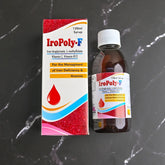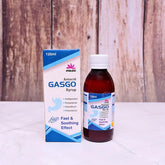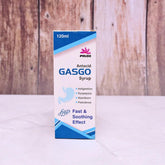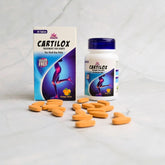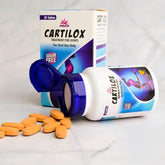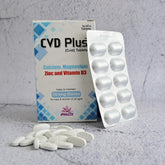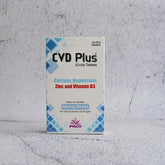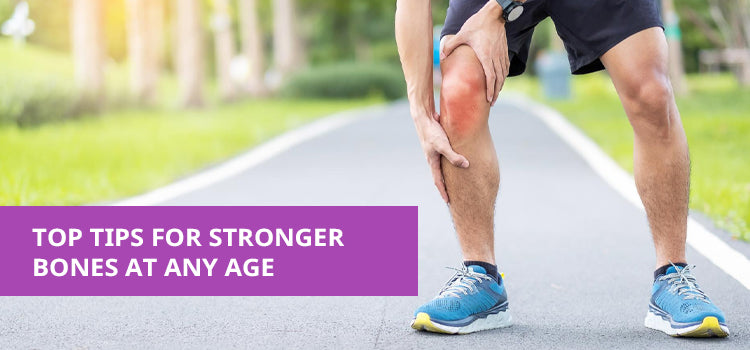Bones are the silent heroes of your body. They give you structure, protect vital organs, and allow mobility. Yet, many of us take them for granted until a fracture or diagnosis like osteoporosis forces us to pay attention. The good news: no matter your age, you can build and maintain strong, healthy bones with the right habits, nutrition, exercise, and, when necessary, supplements or medications.
This guide is designed to provide actionable, evidence-based advice for bone health at any stage of life.
1. Why Bone Health Matters
Bones are living tissues that constantly remodel themselves. They break down old bone and form new bone. Peak bone mass is usually reached by your late 20s or early 30s, after which bone density can decline. While genetics play a role, lifestyle and diet are the biggest factors determining how strong your bones remain.
Strong bones mean:
-
Lower risk of fractures and osteoporosis
-
Better posture and mobility
-
Enhanced balance and fall prevention
-
Easier recovery from injuries
Bone health isn’t just a concern for older adults; it’s something to focus on throughout your life.
2. Lifestyle Habits for Strong Bones
The habits you cultivate daily have a profound impact on bone strength.
a. Avoid Smoking
Smoking slows bone formation, reduces blood flow to bones, and decreases calcium absorption. Quitting smoking is one of the most effective ways to protect your bones.
b. Limit Alcohol
Excessive alcohol consumption interferes with calcium balance and slows bone regeneration. Stick to moderate levels: one drink per day for women and two for men.
c. Prioritize Sleep
During deep sleep, your body releases growth hormone, which stimulates bone repair. Aim for 7–9 hours of quality sleep per night to support bone health.
d. Maintain a Healthy Weight
Being underweight increases the risk of fractures, while excessive weight puts stress on joints and bones. Maintaining a healthy weight is crucial for bone strength and overall wellness.
e. Manage Stress
Chronic stress raises cortisol, which can contribute to bone loss. Incorporate stress-reducing activities like meditation, yoga, or deep-breathing exercises.
3. Nutrition for Strong Bones
Eating the right nutrients is key. Focus on calcium, vitamin D, protein, magnesium, phosphorus, and vitamin K2.
a. Calcium
Calcium is the primary building block of bones. Daily requirements:
-
Adults 19–50: 1,000 mg
-
Women 51+ / Men 71+: 1,200 mg
Sources:
-
Dairy: milk, yogurt, cheese
-
Leafy greens: kale, collard greens
-
Fortified foods: plant-based milks, cereals
-
Fish with bones: sardines, salmon
-
Nuts & seeds: almonds, sesame
b. Vitamin D
Vitamin D helps absorb calcium. Sources:
-
Sunlight (10–30 min daily)
-
Fatty fish: salmon, mackerel, tuna
-
Fortified foods: milk, cereals, orange juice
-
Supplements if advised by a healthcare professional
c. Protein
Protein is essential for bone remodeling. Include:
-
Lean meats, poultry, fish
-
Eggs
-
Beans, lentils, tofu
-
Dairy
d. Magnesium, Phosphorus, and Vitamin K2
These support bone structure:
-
Magnesium: nuts, seeds, whole grains
-
Phosphorus: dairy, meat, fish
-
Vitamin K2: fermented foods like natto, cheese
e. Foods to Limit
-
Excess salt (calcium loss through urine)
-
Sugary drinks (interfere with calcium absorption)
-
High caffeine intake (reduces calcium retention)
-
Excess alcohol
4. Exercise for Strong Bones
Exercise stimulates bone cells and improves balance, reducing fracture risk.
a. Weight-Bearing Exercises
Force your bones to work against gravity:
-
Walking or brisk walking
-
Jogging or running
-
Dancing
-
Hiking or stair climbing
b. Resistance Training
Strengthens both muscles and bones:
-
Dumbbells, resistance bands
-
Bodyweight exercises: squats, lunges, push-ups
c. Balance and Flexibility
Improves stability and prevents falls:
-
Yoga
-
Tai Chi
-
Standing on one leg
-
Stretching routines
d. Age-Specific Exercise Tips
-
Children/Teens: Jumping, running, team sports
-
Adults: Combine cardio, weight-bearing, and resistance training
-
Seniors: Low-impact resistance + balance/flexibility exercises
5. Sample Weekly Exercise Plan
Monday: 30-minute brisk walk + 15 minutes of resistance training
Tuesday: Yoga or stretching for 30 minutes
Wednesday: Jogging or stair climbing + core strengthening
Thursday: Rest or gentle stretching
Friday: Bodyweight exercises (squats, push-ups, lunges)
Saturday: Hiking, dancing, or other weight-bearing activity
Sunday: Tai Chi or light balance training
6. Daily Habits for Bone Health
-
Get daily sunlight for vitamin D
-
Stay hydrated
-
Avoid high-risk activities without protective gear
-
Schedule regular check-ups and bone density scans
7. Supplements and Medications
Sometimes lifestyle alone isn’t enough.
a. Supplements
-
Calcium & vitamin D if dietary intake is insufficient
-
Magnesium, vitamin K2, or collagen may help
-
Always consult a doctor before starting new supplements
b. Prescription Medications
-
Bisphosphonates: slow bone loss
-
SERMs: mimic estrogen’s bone-protective effects
-
Hormone therapy: postmenopausal women
-
Other options: Denosumab, Teriparatide
8. Bone-Healthy Meal Plan
Breakfast: Greek yogurt with almonds and berries + fortified orange juice
Snack: Handful of pumpkin seeds or a boiled egg
Lunch: Grilled salmon with kale salad + quinoa
Snack: Smoothie with spinach, banana, and fortified almond milk
Dinner: Tofu stir-fry with broccoli and sesame seeds
9. Tips by Life Stage
Children/Teens: Focus on high-impact activities and calcium-rich foods.
Adults (20–50): Maintain a balance of exercise, protein intake, and bone-friendly nutrients.
Seniors (50+): Emphasize balance exercises, flexibility, and consider supplements if necessary.
10. Frequently Asked Questions
Q1: Can I reverse bone loss?
A: Bone loss can be slowed or partially reversed with exercise, diet, and medications, but early prevention is best.
Q2: How much calcium is too much?
A: Adults should not exceed 2,500 mg/day. Excess calcium can cause kidney stones.
Q3: Are plant-based diets bad for bones?
A: No, as long as you consume fortified foods and sufficient calcium, vitamin D, and protein.
Q4: How do I know if I need medication?
A: Bone density tests and consultation with a doctor can determine if medications are necessary.
11. Final Thoughts
Strong bones are built gradually over a lifetime. By combining a balanced diet, regular exercise, healthy lifestyle habits, and supplements or medications when needed, you can protect your bones and maintain mobility and independence for years to come.






